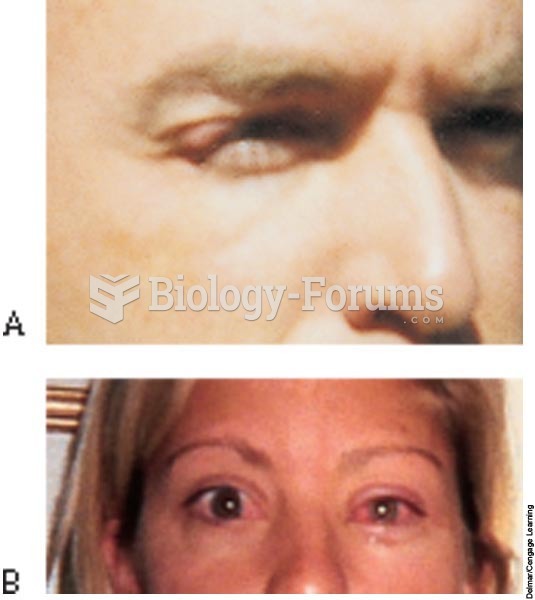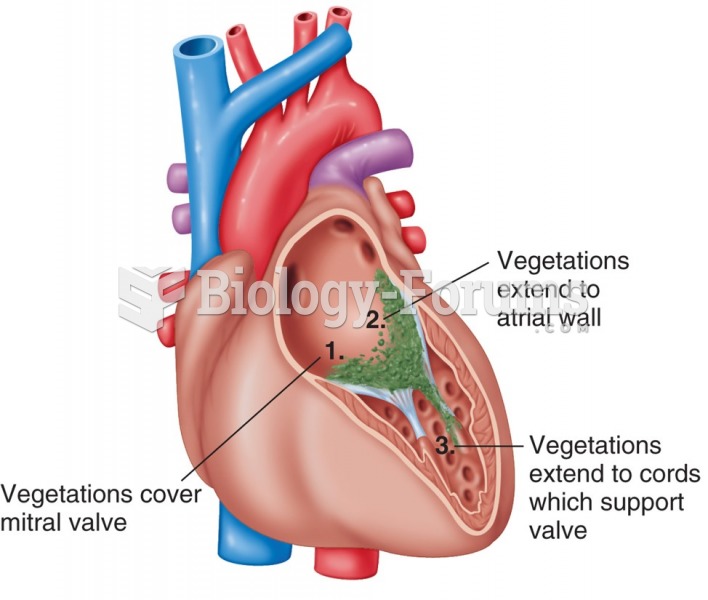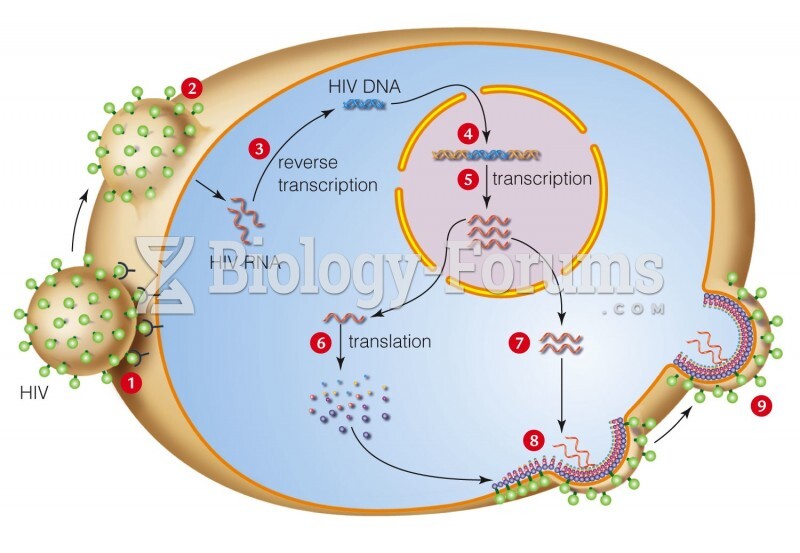|
|
|
Giardia is one of the most common intestinal parasites worldwide, and infects up to 20% of the world population, mostly in poorer countries with inadequate sanitation. Infections are most common in children, though chronic Giardia is more common in adults.
Limit intake of red meat and dairy products made with whole milk. Choose skim milk, low-fat or fat-free dairy products. Limit fried food. Use healthy oils when cooking.
Approximately 25% of all reported medication errors result from some kind of name confusion.
More than 30% of American adults, and about 12% of children utilize health care approaches that were developed outside of conventional medicine.
The heart is located in the center of the chest, with part of it tipped slightly so that it taps against the left side of the chest.







